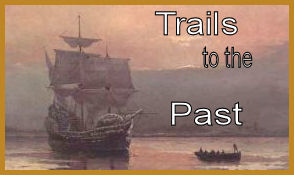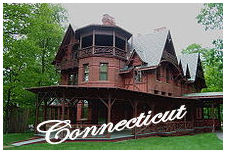|
Fairfield County Connecticut History
Other early county inhabitants include: Joseph Hawley (born 1603 in England; died 1690), who had emigrated to America in 1629 and then settled in Stratford in 1650, later becoming Stratford's first town clerk. Joseph Hawley's son Ephraim built the Ephraim Hawley House in 1683 in Trumbull that is still standing and serves as a private residence. Thomas Fitch (term of office 1700–1774), from Norwalk, was a governor of the Colony of Connecticut. Gold Selleck Silliman (1732–1790) of the town of Fairfield fought for the Americans during the American Revolutionary War and rose to the rank of Brigadier General by 1776. He fought in the New York campaign that year.
During the Revolutionary War, Connecticut's prodigious agricultural output led to it being known informally as "the Provisions State". In the spring of 1777, the British Commander-in-Chief, North America General William Howe, in New York City, ordered William Tryon to interrupt the flow of supplies from Connecticut that were reaching the Continental Army. Tryon and Henry Duncan led a fleet of 26 ships carrying 2,000 men to Westport's Compo Beach to raid Continental Army supply depots in Danbury on April 22, 1777. American Major General David Wooster (1710–1777), who was born in Stratford, was in charge of the stores at Danbury and defended them with a force of only 700 troops. Sybil Ludington helped rally New York militia to aid in the defense of Danbury. The New York militia included Sybil's father Colonel Henry Ludington. Though they arrived too late to save Danbury from burning, the elder Ludington and the New York militia helped support the Danbury troops and ensuing engagement of the British known as the Battle of Ridgefield on April 27, 1777. Wooster was wounded at Ridgefield and died five days later in Danbury.
Two years later during a British raid on Greenwich on February 26, 1779 General Israel Putnam, who had stayed at Knapp's Tavern the previous night, rode away on his horse to warn the people of Stamford. Putnam was shot at by the British raiders but was able to escape. The hat he was wearing with a musket ball hole in it is on display at Knapp's Tavern in Greenwich (which is commonly, albeit somewhat erroneously, called Putnam's cottage). In the summer of 1779, General William Tryon sought to punish Americans by attacking civilian targets in coastal Connecticut with a force of about 2,600 British troops. New Haven was raided on July 5, Fairfield was raided on the 7th and burned. Norwalk was raided on July 10 and burned on the 11th. Norwalk militia leader Captain Stephen Betts put up resistance to the invaders, but was overwhelmed by the powerful British raiders and was forced to retreat.
David Sherman Boardman (1786–1864) was a prominent early lawyer and judge in this and neighboring Litchfield County.
On October 7, 1801, Neremiah Dodge and other members of the Danbury Baptist Association wrote a letter to then president Thomas Jefferson expressing their concern that as Baptists they may not be able to express full religious liberty in the state of Connecticut whose "ancient charter" was adopted before the establishment of a Baptist church in the state. Jefferson replied in a letter to Dodge and the other members of the Danbury church on January 1, 1802 in which he thought that there was "a wall of separation between church and State" that protected them. This well-known phrase occurs in Jefferson's letter to the Danbury church members and not in the First Amendment to the United States Constitution, nor in later amendments.
Although it is often viewed as an extension of metro-New York City, Fairfield County has had much industry in its own right. Bridgeport Machines, Inc., a milling machine manufacturer, was founded in Bridgeport in 1938. Stamford, Connecticut is an example of edge city urbanization, with many large and important companies having offices there and benefitting from proximity to New York.
The information on Trails to the Past © Copyright 2025 may be used in personal family history research, with source citation. The pages in entirety may not be duplicated for publication in any fashion without the permission of the owner. Commercial use of any material on this site is not permitted. Please respect the wishes of those who have contributed their time and efforts to make this free site possible.~Thank you!
|



